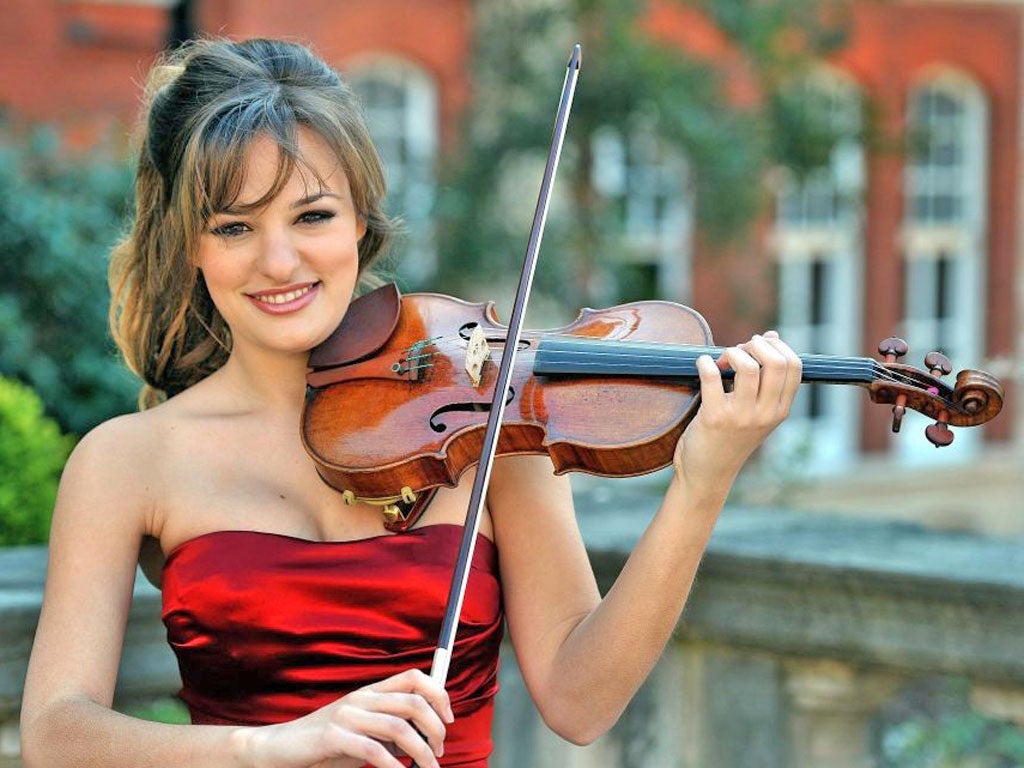Nicola Benedetti is right to say children should have classical music forced on them
They have to learn about maths and literature, so why not music?


You will eat your greens, tidy your room, and listen to Beethoven’s violin concerto.
Should listening to classical music be something that parents force their children to do? Nicola Benedetti, the violin virtuoso, says it should. When Nicola Benedetti talks, I listen. I’ve met her and have found the passion and intensity she brings to her playing is present in her personality, and is applied most to music education, about which she is evangelical and devotes an enormous amount of her time, particularly in her native Scotland. But for many, her latest plea to parents might seem extreme.
She said this week that children should be forced by their parents to listen to classical music rather than play video games. It will teach them “life lessons” and enhance their appreciation of beauty, she said. She added that at school the symphonies of the great composers should be just as indispensable as core parts of the curriculum such as great literary works or maths. “Needing the child’s approval for what they do in school is just such an alien concept when you’re talking about maths, science, history or English, but suddenly when you bring music into the mix it’s ‘oh no, we can’t show them anything that they don’t instantly love because that would be like forcing children into something they don’t want to do.’ It just bemuses me.”
The bemused Benedetti has certainly given me food for thought. No parent would allow a child to say he or she was having nothing to do with maths or reading because it did not interest them. But we would all probably balk at “forcing” children to listen to classical music or indeed “forcing” them to partake in any of the arts, Gentle encouragement tends to be the way, a visit to the theatre as an occasional treat, a piece of classical music playing in the background or in the car.
But if one believes that classical music, and the arts in general, extend the sensibilities and enhance appreciation of life, then why actually are we so coy about insisting rather than hoping that they form a part of every child’s upbringing at school and at home?
Ironically, Benedetti probably has more hope of classical music becoming a core activity at home than at school. I see little chance of the government changing the core curriculum to include symphonies. So it’s on the nation’s parents that Benedetti has to work. No pressure then. But I can see her making some inroads, particularly if she were given a TV series to make her case. Most of all, it needs all of us to change our mind set – to accept that if we love an art form and believe it can change lives, no matter how “difficult” it is perceived to be, then it is not a burden to “force” it upon children. It is doing them an enormous favour.
The new Culture Secretary will go native, but it might be too late
There’s no question that the appointment of John Whittingdale as Culture Secretary is bad news for the BBC — Whittingdale has famously sounded off against the licence fee. But is the appointment also bad news for the arts? Certainly, the arts world is terrified about potential cuts later this year, and it is hard to see that the government can in any way ring-fence the arts from austerity measures. Also, though all Culture ministers eventually go native, it is unlikely that Whittingdale, on the right of the Tory party, will do so in time. So the financial outlook isn’t great. But I gather that leading figures in the arts world are pinning their hopes firstly on the likelihood of better funded areas such as education and health doing more to encourage (and fund) arts involvement, and secondly on the little publicsed fact that the Chancellor of the Exchequer, George Osborne, is keen on the arts. If he remains onside, the future might not be too bleak.
Mike Leigh showed too much respect
I left the premiere of Mike Leigh’s staging of The Pirates of Penzance at English National Opera a puzzled man. Leigh gave a totally conventional, no frills Gilbert and Sullivan. As one critic put it, it was efficient but not great fun; another said it was adequate but offered no new insights. I suspect that Leigh, a known devotee of G&S had too much respect to tamper, update or reimagine. But what then was the point of ENO inviting a famous film director to present his debut opera, if he was not going to bring anything different to the party? Of course, it could be argued that where ENO is concerned, a totally conventional production is a highly radical gesture.
d.lister@independent.co.uk
twitter.com/davidlister1

Join our commenting forum
Join thought-provoking conversations, follow other Independent readers and see their replies